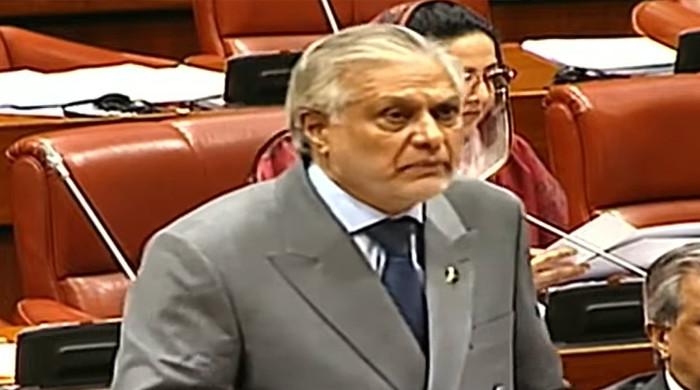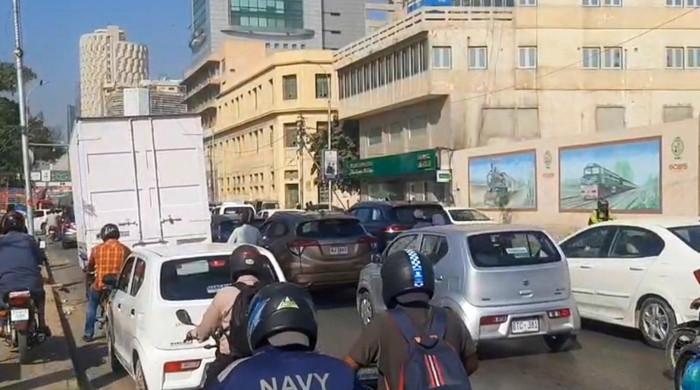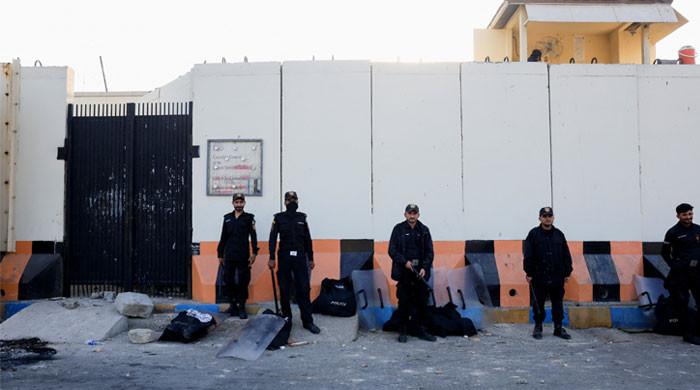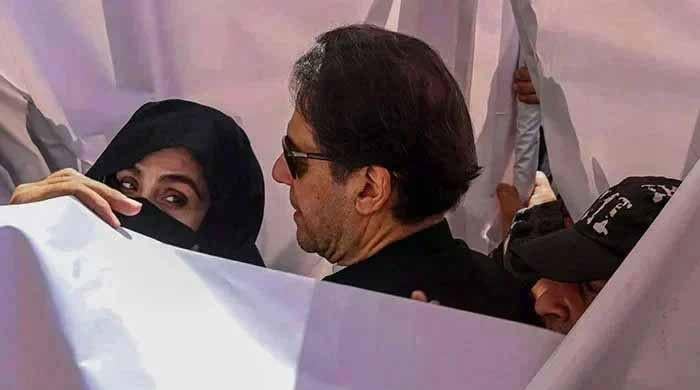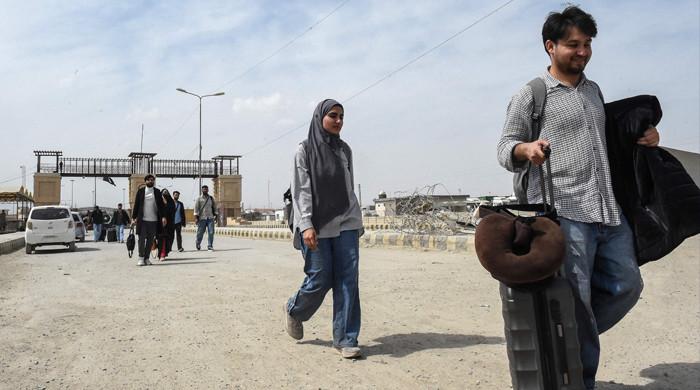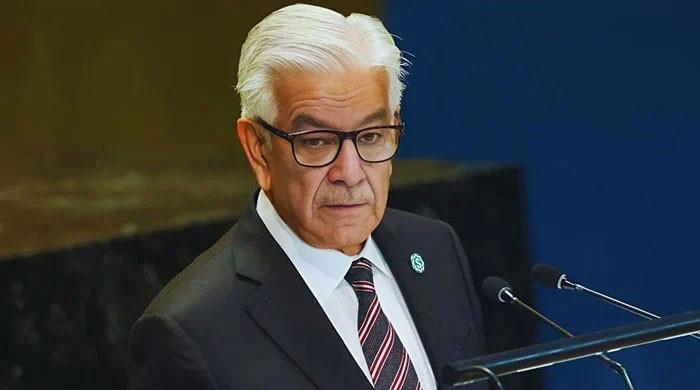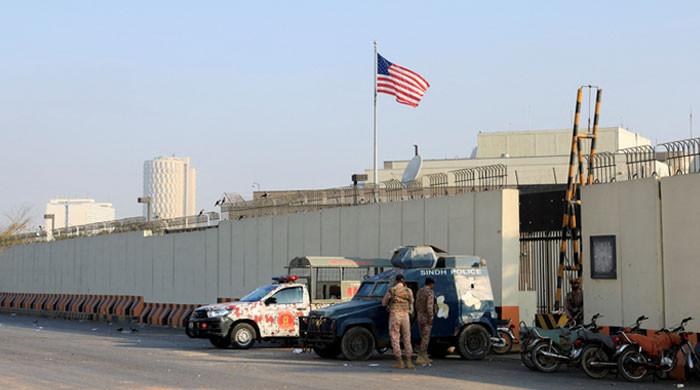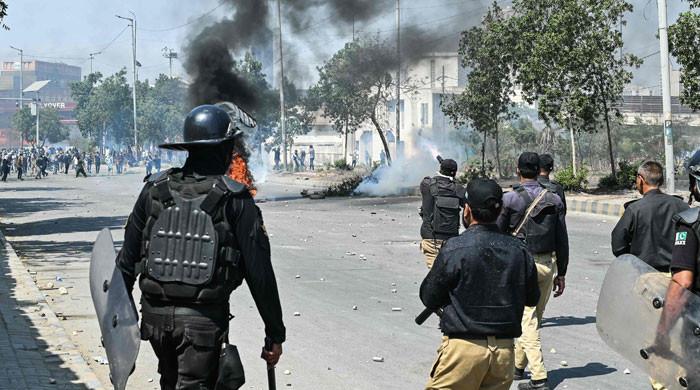Two SC judges agree with Justice Isa over need for deciding fate of Supreme Court law first
Justices Masood and Shah say they agree with what Justice Isa had written in his note
July 05, 2023
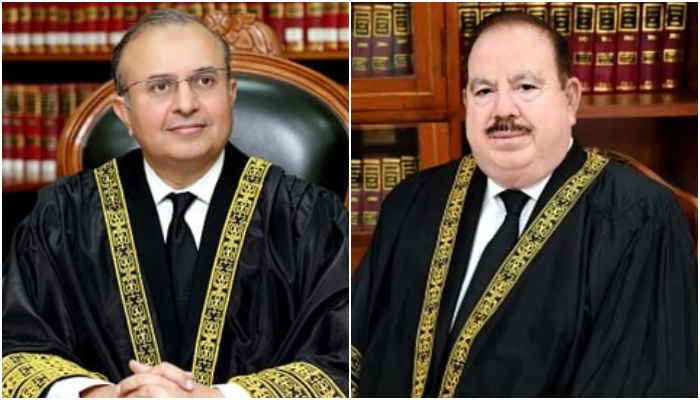
- Detailed notes by judges released after much delay.
- Judges say verdict on SC law must be issued at earliest.
- Justice Sardar Tariq Masood no more member of bench.
KARACHI: Justice Syed Mansoor Ali Shah has said that until the constitutionality of the Supreme Court (Practice and Procedure) Act 2023 is decided, all matters falling under the Supreme Court's original jurisdiction should be heard by a full court bench of the SC.
In detailed notes released Tuesday night, originally written on June 22, SC Justices Sardar Tariq Masood and Syed Mansoor Ali Shah have agreed with Justice Qazi Faez Isa's reasoning regarding refusal to sit in the larger nine-member bench constituted to hear the petitions on military court trials of civilians.
The bench was later trimmed down to seven members.
These notes add to a detailed note written on June 22 by Senior Puisne Judge Justice Isa, who had explained why he had refused to be part of the larger nine-member bench constituted to hear the petitions regarding military court trials of civilians and why the Supreme Court Practice and Procedure Bill, 2023 had to be resolved before he could be part of SC benches.
This note was removed from the apex court website shortly after having been uploaded.
The notes by Justices Masood and Shah are clear in their estimation that the Supreme Court (Practice and Procedure) Act 2023 has to be decided before such benches are formed.
Justice Masood said that he agreed with what Justice Isa had written in his note, revealing that he was also not consulted by Chief Justice Umar Ata Bandial before being made part of the nine-member bench.
He added that "surprisingly," the petitions were fixed just a day after the petitioner of "Constitution Petition No 25 of 2023" and his counsel had met the chief justice.
Justice Masood wrote that he was waiting for the decision regarding the Supreme Court (Practice and Procedure) Act 2023 and had "expected that they would be decided soon".
As had also been pointed out by Justice Isa in his note, Justice Masood too writes about Section 3 of the Supreme Court (Practice and Procedure) Act which stipulates that "any matter invoking exercise of original jurisdiction under clause 3 of Article 184 of the constitution shall be first placed before the committee constituted under section 2 for examination if the committee is of the view that a question of public importance with reference to enforcement of any of the fundamental rights conferred by Chapter 1 of Part II of the constitution is involved it shall constitute a bench comprising not less than three judges of the Supreme Court of Pakistan which may also include the member of the committee for adjudication of the matter."
He said that the current issue (petitions regarding military trials of civilians) "was not referred to the committee, of which I am member."
According to Justice Masood, he was reluctant to sit on a bench till the final decision regarding the Supreme Court (Practice and Procedure) had been given, but since he was heading a bench in which about 30-35 criminal cases used to be fixed daily of people who were in jail, he "kept on dealing the said criminal work" and also requested the chief justice for early disposal of the Supreme Court (Practice and Procedure) Act 2023 petitions.
Importantly — and much like Justice Isa — Justice Masood too says that he has "not recused [himself] from the bench," which is why there is "no question to sign the purported order in which it has been mentioned that new bench will be constituted whereas my point of view was that these petitions be heard after the decision of the said petitions which have been filed against the [Supreme Court (Practice and Procedure) Act 2023]."
Adding his note to the document, Justice Shah says he is sitting on the bench "with a reservation" that "in the recent past there has been a consistent pattern and reluctance of not constituting the full court bench" and instead opting for special benches of some judges in cases of what he calls "immense public importance that have far-reaching impact on the political, social and economic life of the people of Pakistan and their fundamental rights".
This, Justice Shah said, has "severely undermined the authority of the court and the legitimacy of its judgments." Referring to the current case — the military court trial of civilians — he says that "the constitutional significance of the matter involved in the present case and its potential ramifications, call for the highest level of judicial scrutiny".
Making a case for a full bench hearing, he wrote, "collective deliberations and diverse insights by all the judges in cases of public importance helps the court arrive at a sound judgment and reinforces public confidence and trust in this court."
Once again, the Supreme Court (Practice and Procedure) is mentioned, Justice Shah reinforcing the point that until the court "decides the constitutionality of the Supreme Court (Practice and Procedure) Act 2023, Section 3 of which prescribes the procedure for invoking the original jurisdiction of this Court under Article 184(3) of the constitution, all such matters under this jurisdiction must be heard by the full court bench of this court."
Justice Shah says that he had requested Chief Justice Bandial to consider constituting the full court bench but that the CJP had not done so.
Originally published in The News




